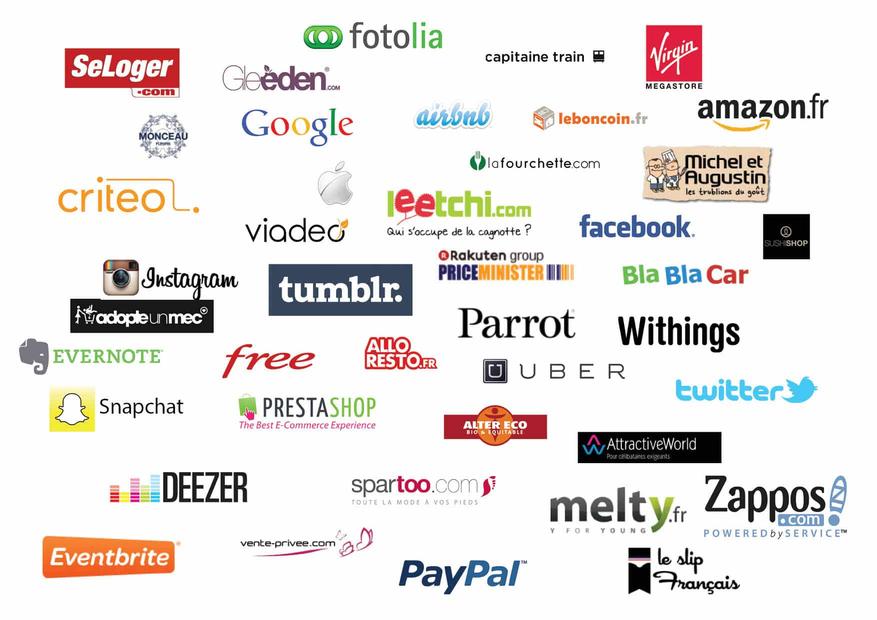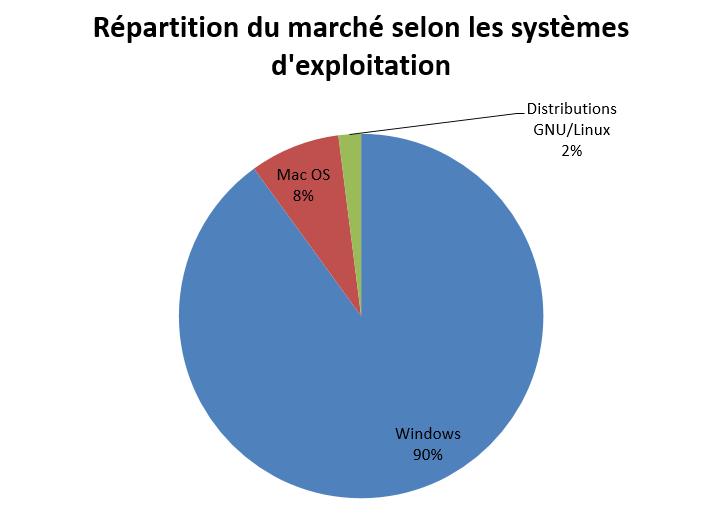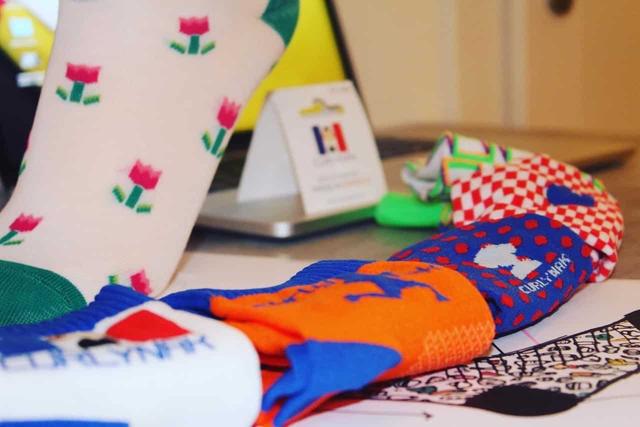These companies that only have French in name
Their name smells like France. And yet, these companies are not French. Their head office is often located overseas, they are not listed in Paris, and are far from paying most of their taxes on the territory. A sum of criteria which, if they do not alone define the nationality of a society, all together give it a home base. So why do these bands have a French name?
For Asian brands, the answer is quite simple. In China and Japan, the Frenchman sounds cool, especially in fashion. This is less the case in Anglo-Saxon countries, which are more adept at French-bashing. And yet, five large groups, English or American, of international renown, have baptized themselves with a name "so French". Here's how it happened.
> DuPont de Nemours
The French surname par excellence. The 25th most worn in the country. And yet, the chemical giant of the same name, inventor of nylon, lycra and teflon, is unquestionably American.
The company was born in Delaware in 1802 and took the full name of its founder: Éleuthère Irénée du Pont de Nemours. Initially, this aristocrat, freshly expatriated with his family to flee the French Revolution, joined forces with a compatriot, Pierre de Bauduy de Bellevue, to set up a factory that produced gunpowder. A business that takes off quickly, supplies the American army and exports to Europe. Two centuries later, the group that had become a leader in agrochemicals merged with The Dow Chemical Company, and partly lost this typically tricolor surname. The new entity will be called DowDuPont.
> Like Boys
Rei Kawakubo, true idol of the influential American blogger Tavi Gevinson, has fully integrated the cult that her fellow fashionistas devote to French luxury. This Japanese woman who lived in Paris in her youth, back on her native archipelago, baptized her androgynous feminine label "Comme des Garçons", in 1969. A priori in reference to the lyrics of Françoise Hardy's song, "Tous boys and girls".
The brand's first fashion show took place in Tokyo in 1975, and the first store opened in the Japanese capital the same year. The Francophile designer nevertheless organized her first parade outside Japanese borders on the Parisian catwalks in 1981, and opened her first foreign store in the fashion capital in 1982. Rei Kawakubo's attachment to France was rewarded by the State in 1993 : he awarded him the title of Knight of the Order of Arts and Letters.

> Cadillac
Everyone (or almost) knows that the brand with the mythical finned coupes is American. The luxury subsidiary of General Motors was born in the heart of the cradle of the automobile of the United States, in Detroit. It is precisely to this city that it owes its "so French" sounding name. He was inspired by the Gascon Antoine de Lamothe-Cadillac. Landed in America at the age of 25, he founded Fort Pontchartrain du Détroit in 1701, which became the great American city where the largest builders in the country were based.
In 1901, Henry M. Leland and his associates, little burned by the failure of a first fruitless attempt alongside a certain Henry Ford, designed a car with a powerful and precise engine. They are in the process of choosing his name. Detroit, precisely, commemorates its bicentenary. Enthusiastic about the festivities, they decide to pay tribute to its founder, and take his coat of arms as the symbol of the brand. A logo that has evolved a lot, until it has become so stylized that the coat of arms is barely recognizable.
> Ready-to-eat
The chain that we come across on every street corner in London has nothing French about it. She is originally from the UK. The English say, "Ready", pronounced Pwet'. It must be said that its pronunciation in the countries where it distributes its freshly prepared sandwiches is not always easy. So much so that according to its American official, “we continually ask ourselves the question of a name change”.
The authorship of the creation of the brand, and therefore the meaning of this name, seems subject to debate. On the chain's French website, it is written that the concept was created in 1986 by Sinclair Beecham and Julian Metcalfe, two gourmet students. According to The Food and Drink innovation website, the first restaurant was opened in 1983 by Jeffrey Hyman, and it was his sister, Valérie, who came up with this name, in reference to the world-famous French ready-to-wear. The French sound also evoked Parisian caterers, renowned for their fresh products.
Today, more than 350 restaurants are spread between Great Britain, its main market, the United States, Hong Kong and China. France comes last, with 12 restaurants. But it is true that the brand only crossed the Channel in 2012.
> Net-to-wear
An American site, founded by an Anglo-American, bought by a Swiss, who merges with an Italian. Nothing very French in there, except that its creator has many connections with France. Her name first, which sounds very French even though Natalie Massenet, 50, was born in Los Angeles to an American journalist father and an English model mother.
Pregnant in 2000, from a Breton from home, she is preparing another baby. This former journalist decides to create an online fashion magazine on which all the clothes and accessories are available for sale. A unique concept. She calls it "net-a-porter". Reference to "ready-to-wear", which is opposed to haute couture in that it is not made to measure. And a nod to the web, the sales territory it chose for itself at a time when e-commerce was in its infancy.
“No one believed in my idea of selling luxury clothes online!” she laughs in Elle. Its site will however take off, being bought in 2010 by the Swiss Richemont, parent company of Cartier and Chloé. then merged in 2015 with its Italian competitor Yoox. Nathalie Massenet, who today is one of the most powerful businesswomen in the world, resigned on September 3.
> Agent provocateur
The lingerie brand was established in 1994 in Britain by designer Vivienne Westwood's son, Joseph Corré, and his then-wife, Serena Rees. In Her Majesty's Kingdom, failing to admire the workings of the French administration, we cultivate an immoderate taste for the language of Molière. "Crème de la crème", "à la", "cliché", "bon voyage", "déjà vu", "rendezvous", "fiancé", "à la mode", "c'est la vie", “au pair”, “avant-garde”, “belle-epoque”, “brunette”… The list of French expressions that have entered everyday language across the Channel is endless.
"Agent provocateur", which refers to those people secretly responsible for disrupting the activity of a group, figures prominently among these common phrases. Here, the luxury label uses it to illustrate the vocation of its underwear: to suggest rather than show everything.







